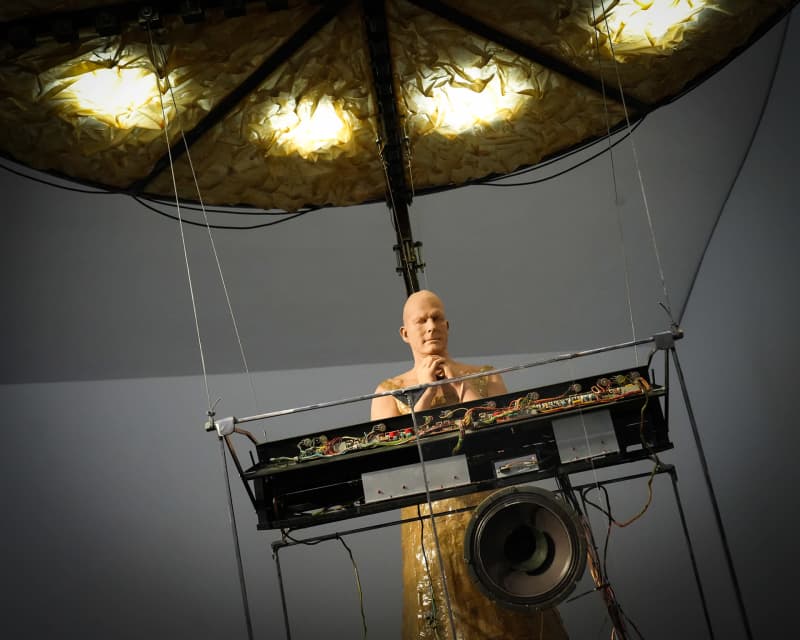
The walkout of over two hundred artists from the Kiasma museum of contemporary art, which began in December, has sparked a debate on the ethics of art funding.
Zabludowicz has played a major role in financing contemporary art. According to the artists, Zabludowicz has supported the Israeli state’s policy towards the Palestinians, which has been described as apartheid by the human rights organisation Amnesty.
According to Jauhiainen, it is generally problematic that the National Gallery has hardly any processes for the ethical evaluation of private funding, apart from the issue of reputational damage.
– For example, the University of Helsinki has an ethics body that assesses which partners, or research funders, are in line with the university’s values. I hope that similar transparency and a similar body could be established at the National Gallery and Kiasma,” Jauhiainen continues.
– This is a very current question. The outlook for the public finances is what it is, so it’s good to prepare for the kind of environment in which more private funding around culture will be sought.
Debate on the ethics of finance
In mid-February, the *Changing world and the ethics of finance* seminar was organized at Kiasma, the museum of contemporary art. The event was held in cooperation with Kiasma and the Kiasma\\_strike movement, and its purpose was to open a public debate on the ethics of private financing
Today, Thursday, the same parties are organizing a follow-up event called *Toward concreteness*.
The artists participating in the work stoppage protesting Kiasma have hoped for new ethical rules of the game. They are on the agenda at the National Gallery’s board meeting at the beginning of April.
– If the presentation goes through in a form that satisfies us and we can confidently return to cooperation with Kiasma, the work stoppage will be lifted, says Jenna Jauhiainen of Kiasma\\_strike.
– At the same time, questions have been raised about what should be taken into account when receiving private funding.
Money is not neutral
According to Jenna Jauhiainen, it is understandable that in the current economic situation, art institutions and museums also want to use private funding, but:
– It’s not about natural law, it’s about political decisions. Money itself is not neutral, and patronage cannot be assumed to be only a positive thing. For example, Zabludowicz has been able to redefine his own position in the public debate and society through art washing through his cooperation with art institutions.
According to Kimmo Levä, the Kiasma\\_strike move means, on a general level, that the National Gallery and Kiasma have to get money from something.
– In the February debate, however, there were individual speeches that are foreign to everyday life. They wondered why we don’t manage things so that the state or another public sector gives us more money.
However, in Jenna Jauhiainen’s opinion, it is clear that in the current world situation there are parties with whom art institutions should avoid cooperation.
– If the Russian state or an oligarch in a powerful position in Russia were to finance a project with public domestic art institutions, everyone would probably already have a feeling in their spine that such a thing would not work. I would also add countries like China, Qatar and Saudi Arabia where the human rights situation is bad. You can also think about whether it would be okay if, for example, the oil industry sponsored Kiasma.
So far, the National Gallery and Kiasma have not had partners with whom cooperation has ended specifically for ethical reasons.
– The National Gallery does not take a position on foreign policy. If some operators or companies were to be excluded because they do business with China, there would be quite a few potential partners left on the Finnish market. I don’t really see this kind of country-specific restriction in the case of China, for example, possible, says Kimmo Levä.
Zabludowicz denies the allegations
Chaim \”Poju\” Zabludowicz, who is also the founder of the Kiasma Support Foundation, stated in December that the stoppage orchestrated by Kiasma\\_strike is a misinformed personal attack that attempts to question Kiasma’s ethics.
He told Yle by email that he is a child of Holocaust refugees who has been given a home in democratic Finland. Zabludowicz also wrote that he supports a two-state solution that would guarantee the peaceful coexistence of Palestinians and Israelis.
In his report to the support foundation’s board, Zabludowicz has also denied being involved in the arms trade and the kind of unclear activity in conflict areas that is referred to in the artists’ statement.
Kiasma, on the other hand, has announced that it cannot influence the composition of the support foundation, because it is a separate, independent actor from Kiasma and the National Gallery.
